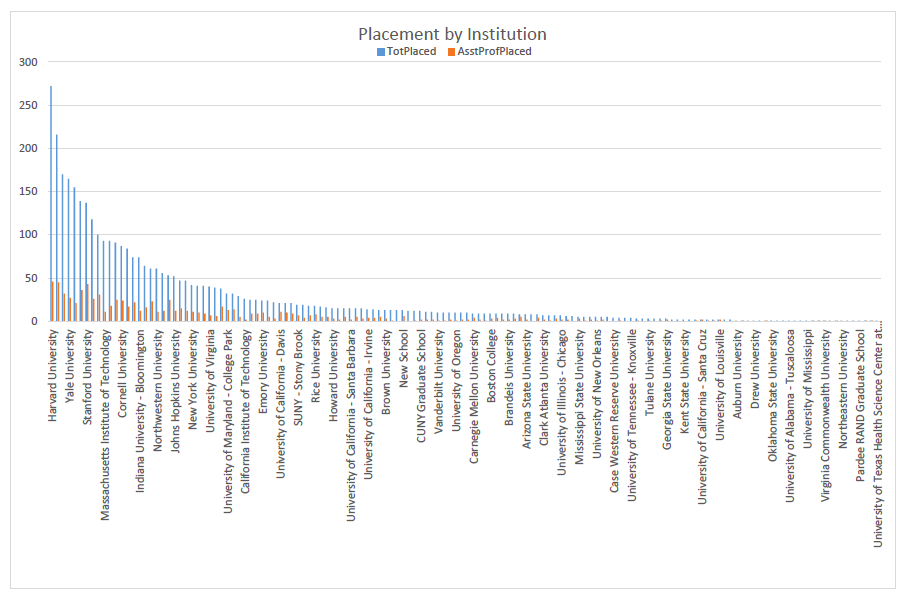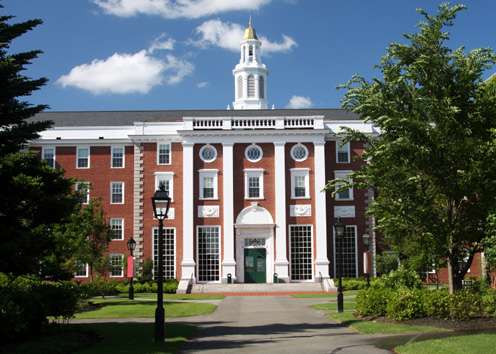By Robert Oprisko
On September 21, 2010, Associate Justice Clarence Thomas criticized the use of academic prestige in the hiring of law students after he was made aware that four of his clerks were called “third-tier trash” on Internet message boards. The students—who hailed from George Mason, Rutgers, George Washington, and Creighton—were considered inferior to peers with more prestigious academic pedigrees. This line of thinking is a clear indication that individual merit is in competition with institutional affiliation to determine future success. With the effects of the 2008 recession lingering and the job market still tight across the United States, institutional hiring practices have become a more prominent public policy concern. While there are protections against employment discrimination based upon race, age, gender, etc., there is nothing that protects against academic class.
In my book, Honor: A Phenomenology, I present a system whereby individuals navigate society based upon processes of honor that determine their value. My conceptualization of prestige (individual excellence) and affiliated honor (excellence granted based only upon membership in prestigious groups) presents a theoretical framework that my research partners and I use to explore hiring practices in academia. We compiled a database of the tenure-track and tenured faculty in all ranked research universities to determine which of those universities successfully placed candidates at peer institutions. We found strongly suggestive evidence that hiring based upon institutional excellence is ubiquitous.
We used the 2009 U.S. News and World Report rankings for political science graduate programs as a proxy variable to determine an applicant’s academic class, or affiliated honor, in order to determine if it significantly influenced hiring processes officially predicated upon individual talent (referred to as prestige). The aggregation of this data includes 116 institutions and 3,135 faculty members who are either tenure-track or tenured. We hypothesized that affiliated honor would directly correlate to employment success. We also hypothesized that a cascade effect would emerge where institutions would place within and immediately below their prestige level such that a prestige-based hierarchy would present itself. The results dramatically show that we were both very right on the first hypothesis and very wrong on the second. There is a group of highly prestigious universities that dominate the political science academic market, effectively shutting out all competition at multiple levels. The fact that these academic superpowers are so dominant and place candidates ubiquitously indicates that institutional prestige drives hiring practices in academia and, perhaps, other highly selective professions (such as law, as indicated in Justice Clarence Thomas’ remarks.)
Our research confirms that there is a direct correlation between institutional prestige and candidate placement. If we consider the highest ranked programs, the three tied at #1, we find that Harvard University has successfully placed 239 political scientists at 75 institutions—including twelve at Harvard. Princeton has successfully placed 108 political scientists at 62 institutions—including five at Princeton. Stanford has successfully placed 128 political scientists at 51 institutions—including three at Stanford. The highest ranked public university, The University of Michigan at Ann Arbor (ranked number four overall), has successfully placed 141 political scientists in 61 institutions—including seven at Michigan. These four schools contribute 616 political scientists; roughly twenty percent of the total tenure-track lines in the discipline at research-intensive programs. The median institutional ranking for the 116 institutions covered is eleven, which implies that eleven schools contribute 50 percent of the political science academics to research-intensive universities in the United States. Over 100 political science PhD programs are graduating students that will contest the remaining 50 percent of openings.

These numbers likely understate the impact of prestigious universities; the present study does not include the many liberal arts colleges and regional universities that also hire graduates of these programs and increase the network of advocates for graduates from highly ranked universities. Of course, this is somewhat expected given that the most prestigious programs are often also the ones that have the highest numbers of students. As we move forward with this project, we will control for institution size and output.
Hiring based upon institutional prestige disproportionately expands the network of the academic superpowers and increases their competitive advantage. In turn, this appears to diminish the institution at which one currently works. The evidence suggests that departments are more concerned with who is placed at their institution than in placing graduates from their institution. As time passes, certain graduate schools might be unable to place any candidates; not because they cannot produce good teachers and scholars, but because “the perception is that good students only come from a handful of schools,” according to Diane Rubenstein of Cornell. Justice Clarence Thomas takes issue with this perception, holding that graduates from schools ranked lower are not “third-tier trash.”
There are smart kids every place. They are male, they are female, they are black, they are white, they are from the West, they are from the South, they are from public schools, they are from public universities, they are from poor families, they are from sharecroppers, they are from all over (Clarence Thomas, Univ. of Florida, 2/4/2010).
Excellent or not, students from less prestigious institutions are less likely to get an opportunity to showcase their talent.
As the academic market tightens up, there are fewer positions available and more graduates than needed. Many universities are losing the ability to place their own students within academia. The theoretical consequence of such hiring practices is that hiring committees often appear to favor people like themselves rather than candidates from schools like the ones in which they work. Therefore, when committees are made up of professors from prestigious institutions, they might be more likely to hire candidates from similarly prestigious institutions. This practice reinforces the perceived inferiority of their current institution. The prophecy of good academics graduating from a handful of dominant programs becomes self-fulfilling and the market landscape bleak for the vast majority of PhD programs. As we move forward with the project, we will collect data to assess the degree to which this pattern is occurring.
Robert L. Oprisko is a Visiting Professor at Butler University. The author thanks research partners Natalie Jackson, and Kirstie Dobbs, Research Assistant at Butler University, for their help with this piece. This article is based on their working paper “Superpowers: The American Academic Elite.”

***Excellent or not, students from less prestigious institutions are less likely to get an opportunity to showcase their talent.***
I’m shocked! Shocked to discover this. Next, you’re going to tell us that gambling is taking place.
“Excellent or not, students from less prestigious institutions are less likely to get an opportunity to showcase their talent.” This study actually cannot assert this. This statement implies controlling for the actual talent of the individual candidate. However, the data described here does not contain this individual level information. The claim above is a strong claim of bias that requires that the research design control effectively for the legitimate bases that may explain the correlation between good programs and good placement. Without doing so, all that can be concluded here is that well regarded programs place their candidates well. No bias can really be inferred. Bias may exist, but it has not been shown above. If institutional affiliation does actually have an independent effect when controlling for candidate qualifications such as publications and awards, then the key thing to investigate is the magnitude of the independent effect. If the magnitude is small, then it can be reasonably explained as a bias away from uncertainty. Prestigious programs that have place many candidates in R1 programs, and thus search committee members are likely to know the training offered within them, these programs help to reduce the uncertainty of search committees as they face stacks of candidates well over 100 for a given R1 position. While this explanation is one of several potential explanations for “bias”, it is not the same type of insidious and “aristocratic” bias the author here is asserting. If an aristocracy does exist in pol-sci R1 jobs, it has not yet been convincingly uncovered with this data or these methods.
I am amused by this article. Welcome to the free market that is controlled only by the market intelligence. Remember a long time ago when there was a saying that nobody ever got fired for chosing to buy an IBM computer system? That is the mental/social culture that rules, at least temporarily, in the market place until someone can show and perceive the distinct value of alternative solutions. An area where there is more public visibility is that of the NFL. The annual draft was generally dominated by players who played for major colleges in the best conferences. In the past decade or more you now see drafted players that were virually unheard of from small colleges. This was a result of more sophisticated selection systems the NFL teams employed partly because there was a lot at stake that justified much more research.
Now I apologize for any PHDs who might be insulted by being compared to an offensive lineman in the NFL but the simple truth is when employers of any kind are looking for someone with a PHD degree they are looking for someone with expertise they personally don’t have. In many and certainly not all situations they go by the “label” since they themselves don’t believe they can determine the most qualified. Not that it is right but they pick by the “source” of the PHD degree.
Do you all agree?
As Guest suggests, this study is deeply flawed. Lower ranked programs may provide as much “value added” as higher ranked programs. But the latter start with entering graduate students who have taken more rigorous undergraduate programs of study, have gotten higher grades, and who have written more compelling application essays. Of course they will, on average, do better.
But the study is flawed in a much more fundamental way. The statistic that really matters to an applicant is this: if I attend this university and do well, what are my odds of getting a good job? Essentially a fraction of good job placements in the numerator and number of PhDs in the denominator. Since the top programs at Harvard, Princeton, Michigan, and other “top 11” schools are enormous, they should be expected to get more good placements. Their denominators are huge, creating huge numerators even if they do a mediocre job. So the fact that the eleven largest departments garner more good placements is a case of dog bites man. It’s expected. And this alone does not speak whatsoever to the question of a particular student’s odds of success.
How is it even possible that this research gets published is beyond me.
Je suis sûr la cual vous êtes heureux d’apprendre que nous-mêmes avons inclus un Call of Duty Ghouls Hack au regard de notre logiciel.
Currently it appears like Expression Engine is the preferred blogging platform out there right now.
(from what I’ve read) Is that what you are using on your
blog?